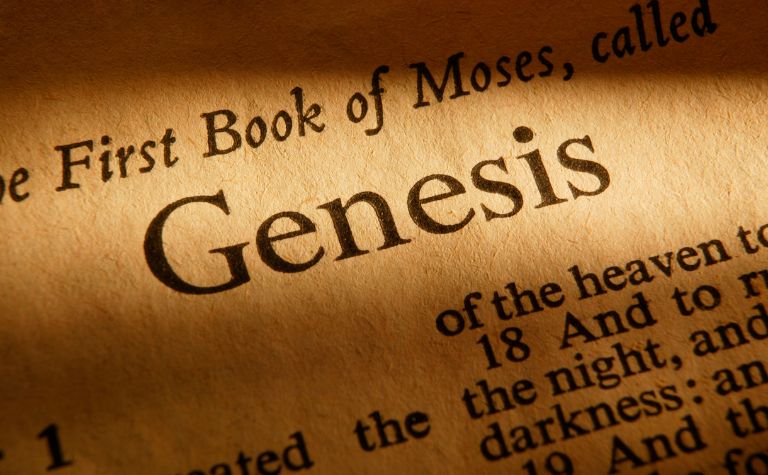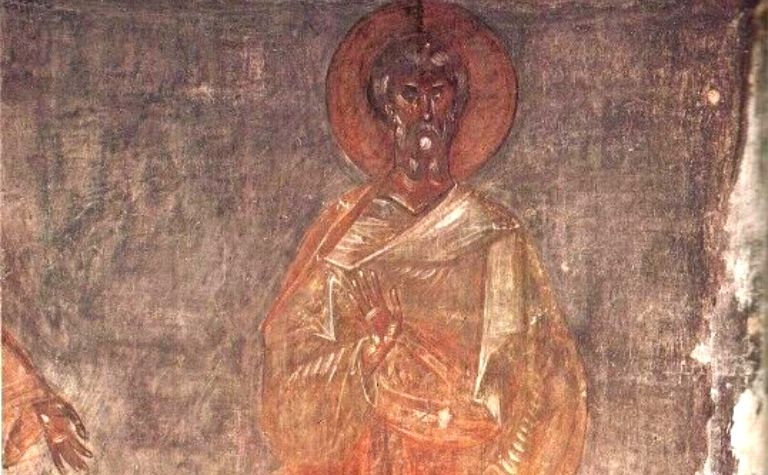Enoch is one of the most fascinating people in the Bible, even though Genesis barely mentions him. Though the description of him is brief, it’s also edifying, instructive, and a little mysterious. Enoch even stands out among the patriarchs of Genesis like Noah and Abraham, because he never died. This fact makes many readers to wonder why God took him directly to heaven.
In its brief description, Genesis says twice that Enoch “walked with God.” While it’s only a three-word phrase, it’s filled with spiritual meaning, revealing Enoch’s faith in God, his fellowship with him, and simultaneously his rejection of the world’s values and priorities.
What exactly does Genesis say about Enoch? How does it describe his relationship with God, and why? What doesn’t the genealogy in Genesis say about Enoch? What does the New Testament say about Enoch Keep reading to learn the answers to these questions and others.
Also see Why Isn’t the Book of Enoch In the Bible? to learn more.

What exactly does Genesis say about Enoch?
Genesis first mentions Enoch in relation to his father Jared in the genealogy in Genesis 5 that starts with Adam and ends with Noah. Genesis 5:18-19 read, “When Jared had lived 162 years, he fathered Enoch. Jared lived after he fathered Enoch 800 years and had other sons and daughters. Thus all the days of Jared were 962 years, and he died.”
Enoch is the next person the genealogy describes. “When Enoch had lived 65 years, he fathered Methuselah. Enoch walked with God after he fathered Methuselah 300 years and had other sons and daughters. Thus all the days of Enoch were 365 years. Enoch walked with God, and he was not, for God took him” (Gen. 5:21-23, ESV, emphasis added).
What the genealogy says about Enoch stands out for three reasons, which are described below. Partly, its uniqueness is what it says about him. Yet, it’s also notable compared to the other people on the list for what it doesn’t say.
Genesis mentions Enoch’s relationship with God
Though the genealogy starts with Adam, who it says was made in God’s image, it doesn’t mention his relationship with God. Of course, Adam had a relationship with God; the genealogy just doesn’t mention it.
Similarly, the list ends with Noah, who Genesis later describes as righteous, blameless in his generation, and one who “walked with God” (Gen. 6:9). Yet there is no mention of Noah’s faith in the genealogy.
One Genesis scholar writes, “The repetition of ‘Enoch walked with God’ may have been designed to dispel any idea that the patriarch’s shorter life was a punishment for sin.” [1]
Another writes that the description “indicates the service of a loyal servant, who goes before his master… paving the way, or who stands before his master ready to serve.” He adds that “walk with” includes an “emphasis on communion and fellowship. [2]
Also see When Was Enoch Born? to learn more.

The genealogy doesn’t say that Enoch died
One of the unique aspects of the genealogy in Genesis 5, compared with lists of family lines elsewhere in the Bible, is that it mentions each man’s death. However, Enoch is the exception. The genealogy provides the age at death for nine of the ten men on the list, all but Enoch.
| Name | Birth Year | Death Year |
|---|---|---|
| Adam | 0 | 930 |
| Seth | 130 | 1042 |
| Enosh | 235 | 1140 |
| Kenan | 325 | 1235 |
| Mahalaleel | 395 | 1290 |
| Jared | 460 | 1422 |
| Enoch | 622 | didn’t die |
| Methuselah | 687 | 1656 |
| Lamech | 874 | 1651 |
| Noah | 1056 | 2006 |
Death plays an important role in the context of the first section of Genesis (Ch. 1-11) because it’s God’s consequence for disobedience and sin. Genesis 2:16-17 read, “And the Lord God commanded the man, saying, ‘You may surely eat of every tree of the garden, but of the tree of the knowledge of good and evil you shall not eat, for in the day that you eat of it you shall surely die‘” (emphasis added).
One reason the genealogy in Genesis 5 mentions that each patriarch died is to highlight that they all experienced the consequences of Adam and Eve’s disobedience. As Romans 6:23 teaches, “For the wages of sin is death, but the free gift of God is eternal life in Christ Jesus our Lord” (ESV). Enoch was a sinner (Rom. 3:23), but God, in his wisdom, decided that he wouldn’t experience physical death.
Also see What Does Enoch Mean? to learn more.

The genealogy says God took Enoch
Enoch’s description breaks the pattern in the genealogy of each man on the list, where it says he died. Instead of saying he died, the text says that Enoch left the earth because God took him. Most English translations say God “took him” (NIV, NLT, ESV, KJV, NKJV, NASB). Yet there is a little more variation of the description before that.
| Translation | Genesis 5:24 |
|---|---|
| ESV | Enoch walked with God, and he was not, for God took him. |
| KJV | And Enoch walked with God: and he was not; for God took him. |
| NASB | Enoch walked with God; and he was not, for God took him. |
| NIV | Enoch walked faithfully with God; then he was no more, because God took him away. |
| NKJV | And Enoch walked with God; and he was not, for God took him. |
| NLT | walking in close fellowship with God. Then one day he disappeared, because God took him. |
What does the New Testament say about Enoch?
The Gospel of Luke includes a genealogy of Jesus and Enoch is mentioned in the list of names. Luke 3:37 reads, “the son of Methuselah, the son of Enoch, the son of Jared, the son of Mahalaleel, the son of Cainan…” The passage doesn’t include any further description of Enoch.
In Hebrews 11:5, the writer mentions Enoch as an example of faith. In the description, he mentions that Enoch never physically died because God took him. “By faith Enoch was taken up so that he should not see death, and he was not found, because God had taken him. Now before he was taken he was commended as having pleased God.”
Jude 14 mentions the name Enoch, yet it’s not a reference to the man, but a book commonly referred to today as 1 Enoch. The verse reads, “It was also about these that Enoch, the seventh from Adam, prophesied, saying, ‘Behold, the Lord comes with ten thousands of his holy ones.” 1 Enoch isn’t in the Bible, but it contains a truthful statement about Christ’s return, which Jude cites.
Also see Who Wrote Genesis? to learn more.
References:
[1] Genesis 1-11:26 by Kenneth Mathews. p. 315.
[2] The Book of Genesis: Chapters 1-17 by Victor Hamilton. p. 258.
Related Questions
Genesis 6:1-4 is one of the most mysterious and debated passages in the first book of the Bible. Many people find that interpreting the verses is challenging because the text doesn't directly...
According to Genesis 3, God placed Adam and Eve in the Garden of Eden to live and have fellowship with him and each other. But then the serpent appeared in paradise. It targeted the first couple,...
